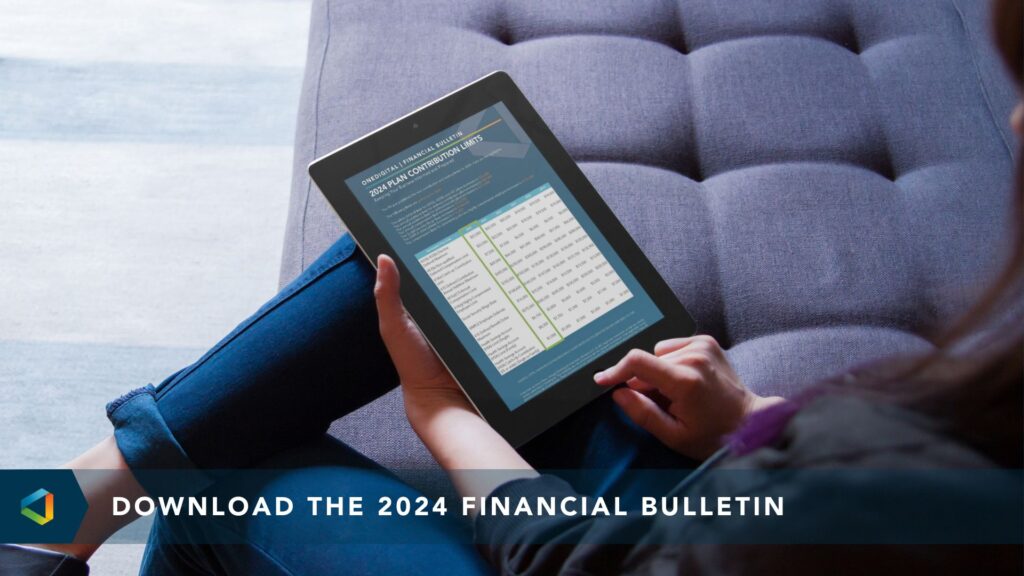Better Benefits, Lower Costs
IRS Audits and the Nonqualified Deferred Compensation Plan
IRS Audits and the Nonqualified Deferred Compensation Plan
After six years without an update to the IRS Nonqualified Deferred Compensation Audit Technique Guide, does the publication of a revised version of the guide signal an auditing ramp up?
The June 2021 publication of the new Audit Technique Guide was the first update the Internal Revenue Service has made to its nonqualified deferred compensation (NQDC) auditing guide since 2015. The update comes after several years in which the number of NQDC audits declined, including 2020, when the IRS took a position of generally not initiating any new audits because of COVID-19 restrictions.
Now, in a post-pandemic environment, with many federal initiatives in need of funding, some experts have suggested that the publication of an updated auditing guide may indicate that the IRS is equipping its auditors to handle an expanded scope and frequency of NQDC audits.
The Nonqualified Deferred Compensation Audit Technique Guide
The 2021 Audit Technique Guide, designated as Department of the Treasury Publication 5528, provides an easy-to-understand overview of fundamental principles of nonqualified deferred compensation. The guide offers insights into Section 409A of the Internal Revenue Code. It includes an expanded discussion of the legal standard applied in reviewing NQDC plans and a detailed list of applicable tax code provisions, Treasury Department regulations and IRS rulings.
The guide published last year is not a supplement to the guidelines published in 2015. Instead, the 2021 Audit Technique Guide wholly replaces the 2015 document. For this reason alone, the 2021 guide has earned a spot on the reading lists of many sponsors and administrators who hope to ensure that their organization’s NQDC plans are compliant and ready in the event of an audit.
Despite the valued insights that Publication 5528 offers, the twenty-plus pages of the guide do not provide an official pronouncement of law. Nor does the 2021 Audit Technique Guide guarantee any positions of the Internal Revenue Service, and its contents cannot be used to justify an action or the failure to have acted should a plan sponsor find itself under the scrutiny of the courts or the IRS.
Plan sponsors, administrators and CFOs can view the guide as an IRS auditor’s playbook. The guide provides valued information on which items are likely to receive the most thorough examination in the event of an audit. Specifically, Section B of the guide (pages 17-22) provides item-by-item recommended examination techniques for NQDC auditors, including questions the auditor should ask in interviewing company personnel.
Directives in the 2021 Audit Technique Guide
The guide discusses various forms of compensation agreements that could be considered nonqualified deferred compensation arrangements based on their structure. The list includes:
- Salary reduction and or bonus deferral agreements that allow the employee to defer receipt of a portion of compensation to the future and are not part of a qualified plan.
- Phantom stock plans that may be subject to Section 409A.
- Excess benefit plans.
- top hat plans or other forms of supplemental executive retirement plans (SERPs).
While many plans are extensively detailed, some are nothing more than a few provisions in an employment contract.
—Nonqualified Deferred Compensation Audit Technique Guide
The guide advises auditors that when reviewing any of these compensation agreements, potentially problematic areas include:
- The timing of income inclusion for the employee or the service provider, recognizing that NQDC plans can be extended to contractors as well as employees.
- The timing of the deduction for the employer or service recipient.
- When deferred amounts are subject to employment taxes. Note: Per the Audit Technique Guide, “Employers must withhold income tax on any amount includible in the employee’s gross income under IRC § 409A. However, the employer is not required to withhold the additional taxes.”
Preventative Maintenance Steps for Nonqualified Plan Sponsors
When new executive contracts are negotiated or leadership teams transition, a company can quickly become out of touch with its NQDC plans. Among the items an organization’s leadership should stay on top of are:
- What NQDC arrangements the company maintains, including bonus plans and phantom stock arrangements, and which ones are exempt from or compliant with Section 409A.
- When FICA tax is being considered for deferred amounts.
- How the timing of the employer’s deduction matches the employee’s inclusion of the compensation in income.
The IRS continues to push for an additional $80 billion in funding and optimistically seeks to more than double its workforce by the end of 2022. If this happens, the agency will be better positioned to expand its auditing capabilities. If the agency continues to operate at its current capacity, the new auditing guide should at the least make the process more efficient for auditors.
IRS audits are a drag on a company’s resources, burning time, productivity and emotional energy. Avoiding them is always the preferred option. When that’s not possible, the next best alternative is to expedite the process by being audit-ready. Using the 2021 Nonqualified Deferred Compensation Audit Technique Guide to self-audit NQDC practices, carefully documenting compensation arrangements and maintaining detailed records of payouts and communications can go a long way to help organizations avoid stressful audits and costly tax penalties.
Want to read more about nonqualified deferred compensation plans? Check out our recent blog post: The Retirement Savings Gap for Executives is Real.

This material has been prepared for informational purposes only, and is not intended to provide, and should not be relied on for, accounting, legal or tax advice. Any tax advice contained herein is of a general nature. You should seek specific advice from your tax professional before pursuing any idea contemplated herein.
Monte Harrick is affiliated with Valmark Securities, Inc. Securities offered through Valmark Securities, Inc. member FINRA, SIPC. Investment Advisory Services offered through Valmark Advisers, Inc. a SEC Registered Investment Advisor. 130 Springside Drive, Suite 300, Akron, OH 44333. 800-765-5201. OneDigital is a separate entity from Valmark Securities, Inc. and Valmark Advisers, Inc. CA License #0771797
Check the background of this investment professional on FINRA’s BrokerCheck.
Some of the Financial Professionals associated with OneDigital are registered representatives of and offer securities through Valmark Securities, Inc. a registered broker-dealer, Member FINRA / SIPC. Additionally, some OneDigital Financial Professionals are also Investment Adviser Representatives and offer advisory services through Valmark Advisers, Inc., an SEC registered investment advisor. To help public members determine the specific registrations associated with our Financial Professionals, we recommend reviewing the Broker Check Link that provides insight to the securities registration and company affiliation of our Financial Professionals. Please note that while the individual Financial Professionals can be associated with multiple financial services organizations, the products and services of those independently owned and operated entities can be separate and segregate. OneDigital is a separate entity from Valmark Securities, Inc. and Valmark Advisers, Inc.
Share
Related News & Updates

Article, Tools & Infographics
2024 Retirement Plan Contribution Limits
11.06.2023



